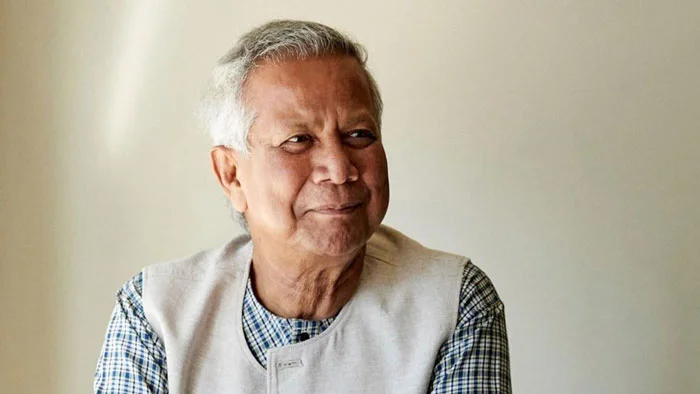Yunus urges swift resolution to water-sharing issues with India
Share on:

Calls for humanitarian approach to flood management
Chief Adviser Muhammad Yunus has emphasised the need to resolve the longstanding transboundary river water-sharing issue between India and Bangladesh in line with international norms.
In the second part of the interview with Press Trust of India conducted at the CA's official residence in Dhaka last Sunday, Yunus said lower riparian countries like Bangladesh have specific rights that must be respected.
The second part of the interview was released today.
"We need to resolve this issue in line with international standards. Lower riparian countries have certain rights, and we want those rights," Yunus said.
He further said Bangladesh's interim government would continue working with India to resolve differences over the long-pending Teesta water-sharing treaty, which has been in limbo since 2011.
According to the chief adviser, "By sitting over this issue [water sharing], it is not serving any purpose. If I know how much water I will get, even if I am not happy and sign it, it would be better. This issue has to be resolved."
When asked about the interim government's stance on fast-tracking the Teesta treaty, Yunus clarified, "Push is a strong word. I wouldn't say we will push, but we will pursue it. Both sides need to sit down and settle it."
The Teesta water-sharing agreement has faced opposition from West Bengal's Chief Minister Mamata Banerjee, who has cited water shortages in her state's northern region.
Yunus acknowledged the complexity of the situation, noting that while the Indian central government was prepared to finalise the deal, the state government's resistance has held it back. "This issue predates Bangladesh's independence. It's time to finalise it," he said.
Yunus also addressed the recurring floods in Bangladesh, some of which have been blamed in some quarters on India's water management practices. He proposed a humanitarian approach to manage flood crises, even in the absence of a formal treaty.
"When the Indian high commissioner met with me, I suggested better coordination to control flood situations. This can be done on humanitarian grounds, without needing a treaty. Such cooperation would ease the suffering of the people," he said.
On the contentious issue of border killings, Yunus strongly condemned the deaths of Bangladeshi citizens along the India-Bangladesh border. "Killing is not a solution. There are legal avenues for dealing with border issues. Those being shot are not invaders but couriers. This is sheer callousness, and it must stop," he added.

